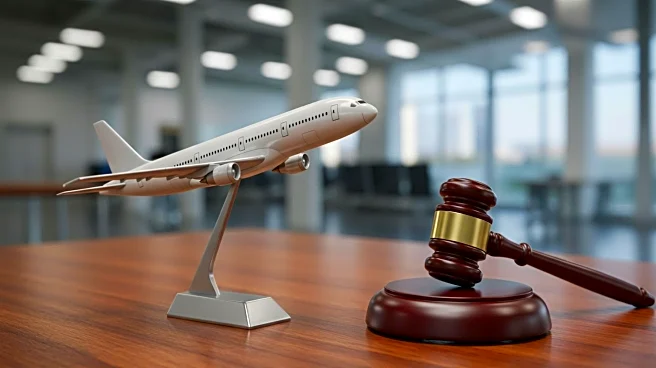What is the story about?
What's Happening?
The Canadian government has intervened in the ongoing strike between Air Canada and its flight attendants union, forcing both parties into arbitration. This decision comes after a work stoppage stranded over 100,000 travelers globally during the peak summer travel season. Federal Jobs Minister Patty Hajdu announced the intervention, emphasizing the need to avoid economic risks. The strike involves 10,000 flight attendants who walked off the job, leading to the shutdown of Air Canada's operations, which typically handle around 700 flights daily. The union had previously rejected the airline's request for government-directed arbitration, which would have eliminated their right to strike. The intervention aims to resume services, although full operations may take days to restart.
Why It's Important?
The strike and subsequent government intervention highlight significant labor disputes within Canada's largest airline, affecting thousands of travelers and potentially impacting the economy. The arbitration process could set a precedent for future labor negotiations in the transportation sector, where strikes can severely disrupt services due to Canada's vast geography. The situation underscores the dependency on air travel in Canada and raises questions about labor rights and fair compensation, especially as the union argues for better wages amid inflation. The outcome of this arbitration could influence labor relations and contract negotiations in other industries.
What's Next?
The arbitration process will determine the terms of a new contract between Air Canada and the flight attendants union. The Canada Industrial Relations Board will oversee the resumption of services, which could take up to a week. Stakeholders, including the Business Council of Canada, have urged the government to impose binding arbitration to resolve the dispute swiftly. The union's demands for better wages and working conditions will be central to the negotiations, and the resolution could impact future labor policies and practices in the airline industry.
Beyond the Headlines
The intervention raises broader questions about the balance between government authority and union rights in labor disputes. The government's decision to force arbitration may be seen as undermining the union's leverage, potentially affecting future negotiations across various sectors. Additionally, the strike highlights gender disparities in compensation, as the predominantly female flight attendants compare their situation to the male-dominated pilot workforce, which received significant raises last year. This could spark discussions on gender equity in labor compensation.

















